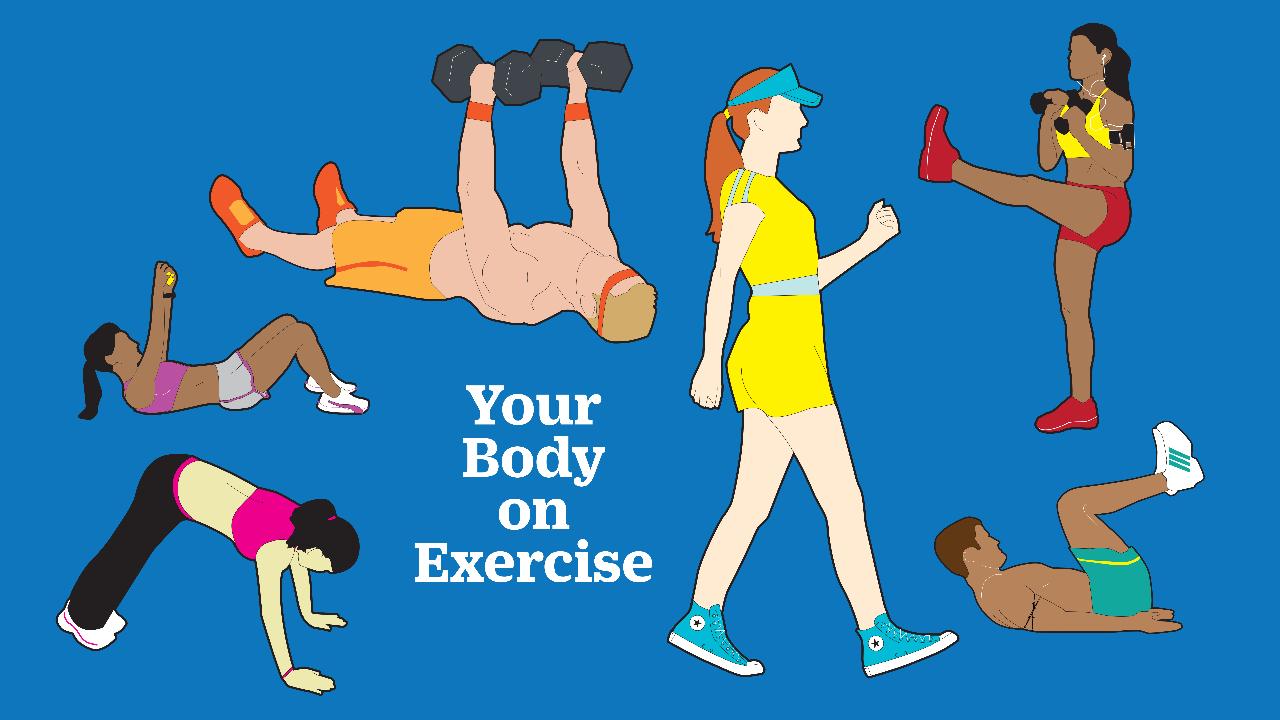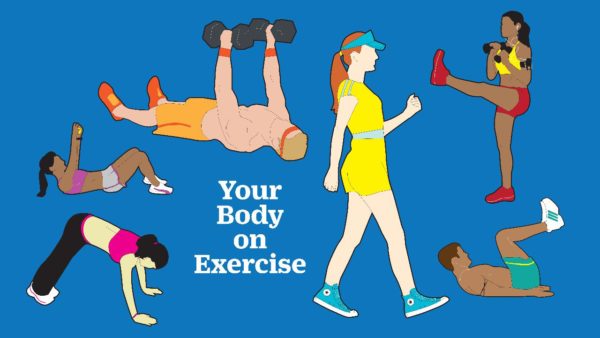
05 Nov Best Workout For Your Personality?
When it comes to choosing the best exercise for your personality, it turns out one size (or exer-size) does not fit all. Turns out some people just aren’t treadmill people; others are not built for group fitness classes. This blog by Lindsay Holmes in the Huff Post explains.

Do you loathe spin classes? Are you utterly bored by the treadmill? You may want to blame your personality, and you wouldn’t be wrong to do so.
How you behave in your everyday life can play a significant role in your workout routine. It explains why some people thrive in Zumba while others rock the weight room. Research shows our personalities and even our moods can dictate the type of workouts we enjoy. For example, introverts may opt to work out solo, sociable people might enjoy group fitness classes, stressed out individuals may gravitate toward yoga, and so on.
Luckily, there are just as many workouts as there are personality types, which makes it incredibly easy to find a regime that fits perfectly into your lifestyle.
“Whoever we are, we manifest that in all of the realms of our life,” James Gavin, a professor of applied human sciences at Concordia University in Montreal, previously told The Huffington Post. “Physical activity is just another expression of our personal preferences and style.”
Gavin, who has spent part of his career researching the intersection of activity and personality, says that while data on the subject is hardly definitive, there are ways to judge what exercise works best for someone’s personality. Part of it comes down to a person’s stress response — or preference — toward specific activities.
And there’s research that supports this theory: A paper published by Margaret Schneider, a researcher at the University of California, Irvine, found a link between physical activity and two specific personality systems, behavioral activation (BAS) and behavioral inhibition (BIS).
According to Schneider, a person who has a high BAS score is more motivated by reward — think winning a race — while someone who has a high BIS score is more motivated to avoid punishment. When it comes to moderate activity, people with high BIS scores may be “more sensitive to the negative cues like sweating, breathing hard and increased heart rate,” according to Schneider.
So what does that all mean, exactly? In short: How you’re wired may define how you view and engage in exercise.
Do you loathe spin classes? Are you utterly bored by the treadmill? You may want to blame your personality, and you wouldn’t be wrong to do so.
How you behave in your everyday life can play a significant role in your workout routine. It explains why some people thrive in Zumba while others rock the weight room. Research shows our personalities and even our moods can dictate the type of workouts we enjoy. For example, introverts may opt to work out solo, sociable people might enjoy group fitness classes, stressed out individuals may gravitate toward yoga, and so on.
Luckily, there are just as many workouts as there are personality types, which makes it incredibly easy to find a regime that fits perfectly into your lifestyle.
“Whoever we are, we manifest that in all of the realms of our life,” James Gavin, a professor of applied human sciences at Concordia University in Montreal, previously told The Huffington Post. “Physical activity is just another expression of our personal preferences and style.”
Gavin, who has spent part of his career researching the intersection of activity and personality, says that while data on the subject is hardly definitive, there are ways to judge what exercise works best for someone’s personality. Part of it comes down to a person’s stress response — or preference — toward specific activities.
And there’s research that supports this theory: A paper published by Margaret Schneider, a researcher at the University of California, Irvine, found a link between physical activity and two specific personality systems, behavioral activation (BAS) and behavioral inhibition (BIS).
According to Schneider, a person who has a high BAS score is more motivated by reward — think winning a race — while someone who has a high BIS score is more motivated to avoid punishment. When it comes to moderate activity, people with high BIS scores may be “more sensitive to the negative cues like sweating, breathing hard and increased heart rate,” according to Schneider.
So what does that all mean, exactly? In short: How you’re wired may define how you view and engage in exercise.
Do you loathe spin classes? Are you utterly bored by the treadmill? You may want to blame your personality, and you wouldn’t be wrong to do so.
How you behave in your everyday life can play a significant role in your workout routine. It explains why some people thrive in Zumba while others rock the weight room. Research shows our personalities and even our moods can dictate the type of workouts we enjoy. For example, introverts may opt to work out solo, sociable people might enjoy group fitness classes, stressed out individuals may gravitate toward yoga, and so on.
Luckily, there are just as many workouts as there are personality types, which makes it incredibly easy to find a regime that fits perfectly into your lifestyle.
“Whoever we are, we manifest that in all of the realms of our life,” James Gavin, a professor of applied human sciences at Concordia University in Montreal, previously told The Huffington Post. “Physical activity is just another expression of our personal preferences and style.”
Gavin, who has spent part of his career researching the intersection of activity and personality, says that while data on the subject is hardly definitive, there are ways to judge what exercise works best for someone’s personality. Part of it comes down to a person’s stress response — or preference — toward specific activities.
And there’s research that supports this theory: A paper published by Margaret Schneider, a researcher at the University of California, Irvine, found a link between physical activity and two specific personality systems, behavioral activation (BAS) and behavioral inhibition (BIS).
According to Schneider, a person who has a high BAS score is more motivated by reward — think winning a race — while someone who has a high BIS score is more motivated to avoid punishment. When it comes to moderate activity, people with high BIS scores may be “more sensitive to the negative cues like sweating, breathing hard and increased heart rate,” according to Schneider.
So what does that all mean, exactly? In short: How you’re wired may define how you view and engage in exercise.


Sorry, the comment form is closed at this time.